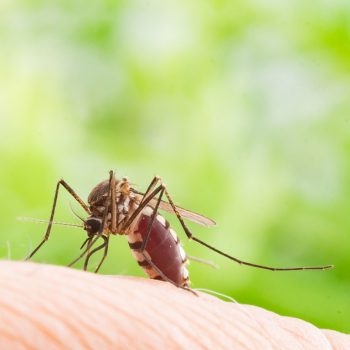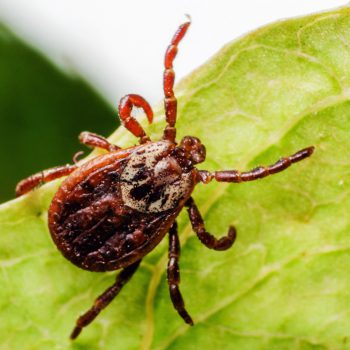EEE Activity in Michigan for 2022 - Confirmed Cases
West Nile Virus Activity in Michigan for 2022 - Confirmed Cases
Mosquitoes

Mosquitoes are more than just a nuisance in the great outdoors — they can also spread harmful diseases to humans and animals alike. The MSU VDL tests for these harmful diseases to help veterinarians and public health officials identify and track cases.
Many people know that mosquitoes transmit heartworm infections, malaria and Zika virus but in Michigan, two mosquito-borne viral diseases — West Nile virus, or WNV, and Eastern equine encephalitis, EEE — pose a fatal threat to humans and animals, especially horses. While EEE cases primarily occur in the Eastern U.S., WNV is found throughout the United States.
Please include vaccination status when submitting equine samples and use our equine submittal form. See our test catalog for information on sample type, collection protocol, shipping requirements, and other important information.
For More Information
- Michigan Emerging Disease Issues website includes information on mosquito-borne diseases in Michigan and the Michigan Zoonotic and Vector-Borne Disease Mapper
- Michigan Weekly Arbovirus Summary includes detailed information about current human and animal cases of arboviruses in Michigan counties; year-end summary is provided at the end of the season
- Centers for Disease Control and Prevention provides national data and information on diseases spread by mosquitoes
Testing for Michigan Animals: MDARD Funds Available to Cover Costs
The Michigan Department of Agriculture and Rural Development (MDARD) is excited to announce the continuation of funding to cover the costs of testing suspect animals for Eastern Equine Encephalitis (EEE) and West Nile virus (WNV) for 2022. The funding is open to anyone in Michigan provided:
- The animal for testing resides in Michigan.
- The animal is (or was recently) showing signs of neurological disease or suddenly died.
- The testing is pre-approved by MDARD.
- The samples are submitted to the Michigan State University Veterinary Diagnostic Laboratory.
The goal of the grant is to test any Michigan animal suspected of having a mosquito-borne illness, especially equids.
Last year, there were 17 cases of mosquito-borne diseases found in domestic animals in Michigan—nine EEE cases and eight WNV cases. The funding provided by this grant helped to identify 10 of these cases.
Even though the number of cases discovered last year was not as high as in previous years, cases were found in counties where the diseases were never previously reported. Testing animals for mosquito-borne diseases not only helps to confirm the presence of the virus but also monitors for any change. This information is used for communicating risk to the public and assessing abatement needs.
To take advantage of this funding opportunity, when a neurologic animal is suspected of having EEE or WNV, please first request the testing by sending an email with a completed Reporting a Reportable Animal Disease Form to mireportableanimal@michigan.gov. If any complications or questions arise, please call MDARD at 800-292-3939. Typically, requests are reviewed and responded to within one business day. If approved, MDARD will send laboratory submittal forms. These forms are to be completed and submitted along with the sample itself to the Michigan State University Veterinary Diagnostic Laboratory. Further directions for sending the sample can be found on the submittal forms.
Pending approval, samples may be collected and stored. Acceptable samples include brain, cerebrospinal fluid, and/or serum. If the animal is dead, brain is always preferred as this allows for a more definitive diagnosis of arboviruses. With brain samples, rabies testing will also be performed at no cost. If submitting brain, an animal’s head can be sent to the laboratory; the brain does not have to be removed prior to the sample being sent. Also, to help aid in testing, MDARD may be able to transport the packaged head and completed forms to the laboratory. Contact MDARD at 800-2929-3939 for more information. When submitting blood, please collect and submit both serum and whole blood.
Further, when submitting samples, it is crucial to collect a thorough vaccine history on the animal, particularly when submitting blood. If possible, please try to determine when the animal was last vaccinated against EEE and WNV. In addition, it is helpful to know if the animal completed an initial vaccine series and who last vaccinated the animal (e.g., owner, veterinarian). Once the testing is completed, MDARD will send notification of the results.
Testing animals for mosquito-borne diseases provides useful information to help further protect animal and public health. Please be sure to take advantage of this opportunity.
Ticks

Ticks and tick-borne diseases such as anaplasmosis, babesiosis, ehrlichiosis, Lyme disease, and Rocky Mountain spotted fever pose a health risk to humans and various species of livestock and companion animals. In recent years, the geographic ranges of these diseases have expanded in part due to changing weather patterns and events. The ease of modern transportation also allows for movement of animals (and potentially insect/arachnid vectors) all over the globe. Veterinarians and pet owners should be aware of current trends in their area and locations where pets may have lived or traveled previously.
The MSU VDL closely monitors new and emerging tick-borne diseases to provide veterinarians with the best diagnostics to detect possible infections based on the type of tick and geographic region. For example, a new type of Borrelia, termed Borrelia mayonii, has emerged in the western Great Lakes region. Like Borrelia burgdorferi, it is also found in Ixodes scapularis ticks and is a causative agent of Lyme disease. In addition, detections of anaplasma are increasing in areas where it has not been found typically.
Diagnostic Options
The MSU VDL offers several tick-borne diagnostic options for veterinarians through submission of whole blood, serum, or tick. Check our test catalog for more information. Specific diagnostic options include:
- Anaplasma phagocytophilum IFA
- Anaplasma spp PCR
- Babesia canis IFA
- Babesia gibsoni IFA
- Babesia spp PCR
- Ehrlichia canis IFA
- Ehrlichia spp PCR
- Equine Tick Core Panel
- Lyme IFA
- Lyme PCR
- Rickettsia rickettsii IFA
- Rickettsia PCR
- Tick-Borne Disease Antibody Screen
- Tick Identification
- Tick PCR
For More Information
- Tiny Arachnids with a Big Bite—Let’s Talk Ticks! (Summer 2020) provides detailed information for veterinary practitioners on tick-borne diseases and diagnostic testing strategies
- Ticks & Tick-Borne Diseases: Information for Pet Owners & Clinicians includes quick tick facts, resources for additional information, and resources specifically for our Michigan clients
- Michigan Emerging Disease Issues website includes information on vector-borne diseases in Michigan and the Michigan Zoonotic and Vector-Borne Disease Mapper
- Companion Animal Parasite Council offers tickborne disease prevalence maps, forecasts, and a subscription for disease alerts
- Centers for Disease Control and Prevention provides national data on tick-borne diseases
As always, if you have questions, need help ordering tests, or want more information on testing, please call the laboratory. We enjoy the opportunity to talk with our clients!
